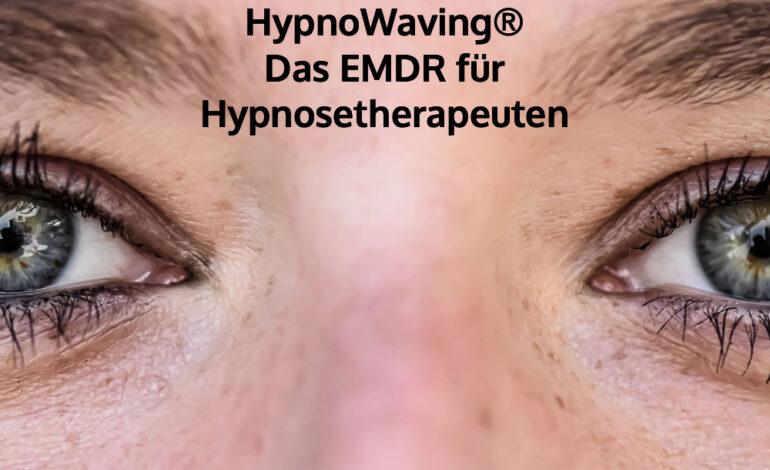“If I can’t get out of bed in the morning, I don’t have to go to school – and then I don’t have to write any exams.” 15-year-old Sven’s school-leaving certificate is on the line. The boy has suffered from crippling test anxiety since the third grade of secondary school. Although he tries hard, swots up for the exams and has his parents quiz him, he repeatedly blacks out during the exams and feels more and more like a failure. His avoidance strategy of staying away from school every now and then because of headaches, stomach ache or nausea is supposed to protect him from failure, but – how could it be otherwise – it comes to nothing. Over time, he gives up inside. Thus gets sucked into an ever faster downward spiral. His parents are overwhelmed, at a loss, helpless.
Why children suffer from test anxiety.
“Sven is by no means the only one with his story of suffering. Exam nerves and school refusal are issues that I have encountered even more frequently in my practice in the last year than before,” explains Barbara Scholl, hypnotherapist OHTC, NGH and OMNI hypnosis instructor. “For many children, the serious side of life often begins in kindergarten.” Even at the tender age of 5 – 6, they begin to compare and compete with others. In the first years of school, children are often already under pressure: they want to please their teachers and parents.
“Negative and stressful events slowly and unnoticed build up a negative emotional trail of experience in the child’s subconscious,” Scholl continues. “All it then takes is a final trigger that breaks the camel’s back and brings symptoms to the surface – such as blackouts during exams.” According to the hypnotherapist, this inevitably sets off a vicious circle. While the child is working hard, doing homework, studying with parents, going to tutoring regularly, even more pressure builds up. And blackouts are occurring more and more frequently. In this way, exams become a spectre on the child’s emotional level.
“The emotion-controlled amygdala – the warning system in the brain – reliably triggers an alarm to supposedly protect the child, for example when an exam is coming up. As soon as the teacher hands out the exam questions, the amygdala sounds a major alarm: warning messengers are pumped into the young person’s body. The pupils dilate. Breathing accelerates. The heart races. The hands… drenched in sweat. The brain has only one goal: escape. And so, in a flash, the body releases large amounts of blood into the feet and legs. Ready to run away blindly,” explains the co-author of the bestseller “Hypnotherapy for Children and Adolescents”.
But the child has no choice but to remain seated – rooted to the spot. His brain is not supplied with enough oxygen where logical thinking takes place. What happens? A blackout occurs: all formulas, numbers and vocabulary are gone, disappeared. In this state, it is impossible for the child to recall what they have learned.
And then at home comes this: How do I tell my parents? The parents may scold the child, reproach him – because they are worried about his future. “Will our child even find an apprenticeship? Will it pass the entrance exam for high school? Will they even be able to keep up in a performance-oriented society?” And so the vicious circle goes on and on.
“At some point, the children get desperate, give up and stop learning altogether. What’s the point? This resignation may then manifest itself in eating disorders – which mainly affect girls – or in aggressive behavior in the family – which is often observed in boys,” says Scholl.
How hypnotherapy works with children and adolescents.
“When young people come to my practice because of exam anxiety, I show them the large and extremely impressive art photograph of the human brain. At first glance, you might think that the brain depicted is made of golden spaghetti. This photographic work of art depicts the neuronal connections in the brain. I explain to my young customers where the amygdala is located and how it acts as an alarm center in their brain,” explains the mother of 3 children. According to their statements, a great relief is noticeable on the faces of the children and adolescents when they realize that their willpower is actually a hindrance to test anxiety, that the amygdala then sounds the alarm even more and sends even more blood and oxygen to the lower extremities of their body for the flight response. “Suddenly the fog clears. The children begin to understand that the strong emotions in their subconscious take over when things get dicey. This information alone brings enormous relief to the children and young people.”
Hypnosis is a natural state of attention that we all know and experience ourselves every day. “In hypnotherapy, children learn to turn their attention inwards and recognize that they have all the resources they need. In the sessions, I often hear: What, I can talk to my amygdala? So cool!” In her experience, Barbara Scholl reckons with one to two hypnotherapy sessions. Under guidance, the children and young people learn to work through the negative emotional experiences themselves. They are merely guided through the process by the therapist; they have to do the work themselves. As a hypnotherapist, Barbara Scholl hears again and again: “Wow, I actually managed that all by myself, with my golden spaghetti in my brain, that’s amazing!”. According to the therapist, OMNI hypnotherapy is a short-term therapy. “Because the children and young people should be back on the football pitch, the trampoline or behind exciting books as quickly as possible. After all, that’s where they belong.”
What parents and guardians can do if their child suffers from test anxiety.
“It is important that children and young people are not forced into a hypnotherapy session. Instead, parents and guardians should arouse their offspring’s curiosity. They should also find out for themselves on the hypnotherapist’s website.” Barbara Scholl recommends involving teenagers in the decision-making process. “She or he is part of the solution. Hypnosis is always teamwork.”
The hypnotherapist believes that it can be valuable for parents to come to hypnotherapy so that they can let go of their existential fears for their child and give them more confidence instead. This in turn can give the child’s self-confidence and self-esteem an incredible boost.
According to Barbara Scholl, the hypnosis session with Sven revealed that the child had to sit on a chair and look at the wall for several minutes three times in kindergarten as a punishment. The boy, who could not comprehend this punishment, felt exposed in front of everyone, felt a deep sense of shame – which created negative beliefs in him on an emotional level: “I’m not enough. I’m wrong.” At elementary school, the boy was later accused of conspicuous and provocative behavior. The latter, in turn, often feels unfairly treated. Over time, he accumulates more and more anger. Until finally his academic performance at secondary school plummets. “After two hypnotherapy sessions, Sven’s exam nerves have disappeared. Since then, the boy has been taking exams again. He has now finished school and started his dream apprenticeship. According to his mother, he is happy and in a good mood again. His teacher is also satisfied with the teenager’s performance. The parents are very relieved and grateful.”
About Barbara Scholl, OMNI and HypnoKids® instructor
Barbara Scholl has been focusing her attention on hypnosis for over 13 years. Prior to this, she was a passionate specialist teacher of English at secondary level for 14 years. Barbara Scholl is a specialist speaker at congresses in Europe and the USA on the subject of child and adolescent hypnosis and a hypnotherapist at the OMNI Hypnosis Center in Effretikon. She is a popular speaker at vocational schools and in-house training courses for apprentices of all ages on the subject of “Mindset in Pole Position”.
More information at: https://barbarascholl.com/de/




